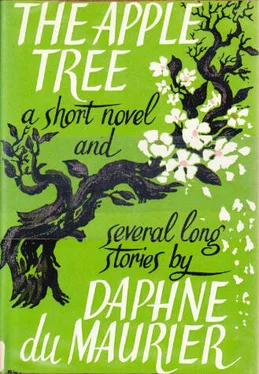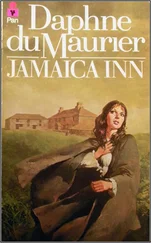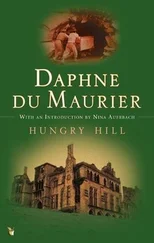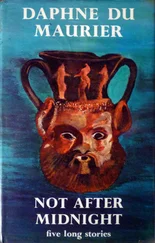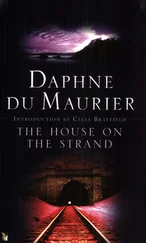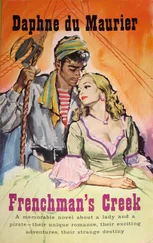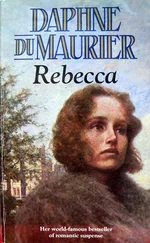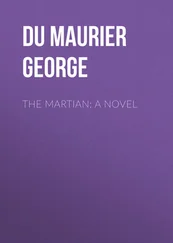Daphne du Maurier - The Apple Tree - a short novel & several long stories
Здесь есть возможность читать онлайн «Daphne du Maurier - The Apple Tree - a short novel & several long stories» весь текст электронной книги совершенно бесплатно (целиком полную версию без сокращений). В некоторых случаях можно слушать аудио, скачать через торрент в формате fb2 и присутствует краткое содержание. Жанр: Современная проза, Триллер, Социально-психологическая фантастика, на английском языке. Описание произведения, (предисловие) а так же отзывы посетителей доступны на портале библиотеки ЛибКат.
- Название:The Apple Tree: a short novel & several long stories
- Автор:
- Жанр:
- Год:неизвестен
- ISBN:нет данных
- Рейтинг книги:5 / 5. Голосов: 1
-
Избранное:Добавить в избранное
- Отзывы:
-
Ваша оценка:
- 100
- 1
- 2
- 3
- 4
- 5
The Apple Tree: a short novel & several long stories: краткое содержание, описание и аннотация
Предлагаем к чтению аннотацию, описание, краткое содержание или предисловие (зависит от того, что написал сам автор книги «The Apple Tree: a short novel & several long stories»). Если вы не нашли необходимую информацию о книге — напишите в комментариях, мы постараемся отыскать её.
The Apple Tree: a short novel & several long stories — читать онлайн бесплатно полную книгу (весь текст) целиком
Ниже представлен текст книги, разбитый по страницам. Система сохранения места последней прочитанной страницы, позволяет с удобством читать онлайн бесплатно книгу «The Apple Tree: a short novel & several long stories», без необходимости каждый раз заново искать на чём Вы остановились. Поставьте закладку, и сможете в любой момент перейти на страницу, на которой закончили чтение.
Интервал:
Закладка:
"We'll have supper early," suggested Nat, "something for a treat. Ask Mammy. Toasted cheese, eh? Something we all like?"
He winked and nodded at his wife. He wanted the look of dread, of apprehension, to go from Jill's face.
He helped with the supper, whistling, singing, making as much clatter as he could, and it seemed to him that the shuffling and the tapping were not so intense as they had been at first. Presently he went up to the bedrooms and listened, and he no longer heard the jostling for place upon the roof.
"They've got reasoning powers," he thought, "they know it's hard to break in here. They'll try elsewhere. They won't waste their time with us."
Supper passed without incident, and then, when they were clearing away, they heard a new sound, droning, familiar, a sound they all knew and understood.
His wife looked up at him, her face alight. "It's 'planes," she said, "they're sending out 'planes after the birds. That's what I said they ought to do, all along. That will get them. Isn't that gun-fire? Can't you hear guns?"
It might be gun-fire, out at sea. Nat could not tell. Big naval guns might have an effect upon the gulls out at sea, but the gulls were inland now. The guns couldn't shell the shore, because of the population.
"It's good, isn't it," said his wife, "to hear the 'planes?"
And Jill, catching her enthusiasm, jumped up and down with Johnny. "The 'planes will get the birds. The 'planes will shoot them."
Just then they heard a crash about two miles distant, followed by a second, then a third. The droning became more distant, passed away out to sea.
"What was that?" asked his wife. "Were they dropping bombs on the birds?"
"I don't know," answered Nat, "I don't think so." He did not want to tell her that the sound they had heard was the crashing of aircraft. It was, he had no doubt, a venture on the part of the authorities to send out reconnaissance forces, but they might have known the venture was suicidal. What could aircraft do against birds that flung themselves to death against propeller and fuselage, but hurtle to the ground themselves? This was being tried now, he supposed, over the whole country. And at a cost. Someone high up had lost his head.
"Where have the 'planes gone, Dad?" asked Jill.
"Back to base," he said. "Come on, now, time to tuck down for bed."
It kept his wife occupied, undressing the children before the fire, seeing to the bedding, one thing and another, while he went round the cottage again, making sure that nothing had worked loose. There was no further drone of aircraft, and the naval guns had ceased. "Waste of life and effort," Nat said to himself "We can't destroy enough of them that way. Cost too heavy. There's always gas. Maybe they'll try spraying with gas, mustard gas. We'll be warned first, of course, if they do. There's one thing, the best brains of the country will be on to it tonight."
Somehow the thought reassured him. He had a picture of scientists, naturalists, technicians, and all those chaps they called the back-room boys, summoned to a council; they'd be working on the problem now. This was not a job for the government, for the chiefs-of-staff — they would merely carry out the orders of the scientists.
"They'll have to be ruth1ess," he thought. "Where the trouble's worst they'll have to risk more lives, if they use gas. All the livestock, too, and the soil — all contaminated. As long as everyone doesn't panic. That's the trouble. People panicking, losing their heads. The B.B.C. was right to warn us of that."
Upstairs in the bedrooms all was quiet. No further scraping and stabbing at the windows. A lull in battle. Forces regrouping. Wasn't that what they called it, in the old war-time bulletins? The wind hadn't dropped, though. He could still hear it, roaring in the chimneys. And the sea breaking down on the shore. Then he remembered the tide. The tide would be on the turn. Maybe the lull in battle was because of the tide. There was some law the birds obeyed, and it was all to do with the east wind and the tide.
He glanced at his watch. Nearly eight o'clock. It must have gone high water an hour ago. That explained the lull: the birds attacked with the flood tide. It might not work that way inland, up country, but it seemed as if it was so this way on the coast. He reckoned the time limit in his head. They had six hours to go, without attack. When the tide turned again, around one-twenty in the morning, the birds would come back…
There were two things he could do. The first to rest, with his wife and the children, and all of them snatch what sleep they could, until the small hours. The second to go out, see how they were faring at the farm, see if the telephone was still working there, so that they might get news from the exchange.
He called softly to his wife, who had just settled the children. She came half—way up the stairs and he whispered to her.
"You're not to go," she said at once, "you're not to go and leave me alone with the children. I can't stand it."
Her voice rose hysterically. He hushed her, calmed her. "All right," he said, "all right. I'll wait till morning. And we'll get the wireless bulletin then too, at seven. But in the morning, when the tide ebbs again, I'll try for the farm, and they may let us have bread and potatoes, and milk too."
His mind was busy again, planning against emergency. They would not have milked, of course, this evening. The cows would be standing by the gate, waiting in the yard, with the household inside, battened behind boards, as they were here at the cottage. That is, if they had time to take precautions. He thought of the farmer, Trigg, smiling at him from the car. There would have been no shooting party, not tonight.
The children were asleep. His wife, still clothed, was sitting on her mattress. She watched him, her eyes nervous.
"What are you going to do?" she whispered.
He shook his head for silence. Softly, stealthily, he opened the back door and looked outside.
It was pitch dark. The wind was blowing harder than ever, coming in steady gusts, icy, from the sea. He kicked at the step outside the door. It was heaped with birds. There were dead birds everywhere. Under the windows, against the walls. These were the suicides, the divers, the ones with broken necks. Wherever he looked he saw dead birds. No trace of the living. The living had flown seaward with the turn of the tide. The gulls would be riding the seas now, as they had done in the fore-noon.
In the far distance, on the hill where the tractor had been two days before, something was burning. One of the aircraft that had crashed; the fire, fanned by the wind, had set light to a stack.
He looked at the bodies of the birds, and he had a notion that if he heaped them, one upon the other, on the window sills they would make added protection for the next attack. Not much, perhaps, but something. The bodies would have to be clawed at, pecked, and dragged aside, before the living birds gained purchase on the sills and attacked the panes. He set to work in the darkness. It was queer; he hated touching them. The bodies were still warm and bloody. The blood matted their feathers. He felt his stomach turn, but he went on with his work. He noticed, grimly, that every window-pane was shattered. Only the boards had kept the birds from breaking in. He stuffed the cracked panes with the bleeding bodies of the birds.
When he had finished he went back into the cottage. He barricaded the kitchen door, made it doubly secure. He took off his bandages, sticky with the birds' blood, not with his own cuts, and put on fresh plaster.
His wife had made him cocoa and he drank it thirstily. He was very tired.
"All right," he said, smiling, "don't worry. We'll get through."
He lay down on his mattress and closed his eyes. He slept at once. He dreamt uneasily, because through his dreams there ran a thread of something forgotten. Some piece of work, neglected, that he should have done. Some precaution that he had known well but had not taken, and he could not put a name to it in his dreams. It was connected in some way with the burning aircraft and the stack upon the hill. He went on sleeping, though; he did not awake. It was his wife shaking his shoulder that awoke him finally.
Читать дальшеИнтервал:
Закладка:
Похожие книги на «The Apple Tree: a short novel & several long stories»
Представляем Вашему вниманию похожие книги на «The Apple Tree: a short novel & several long stories» списком для выбора. Мы отобрали схожую по названию и смыслу литературу в надежде предоставить читателям больше вариантов отыскать новые, интересные, ещё непрочитанные произведения.
Обсуждение, отзывы о книге «The Apple Tree: a short novel & several long stories» и просто собственные мнения читателей. Оставьте ваши комментарии, напишите, что Вы думаете о произведении, его смысле или главных героях. Укажите что конкретно понравилось, а что нет, и почему Вы так считаете.
